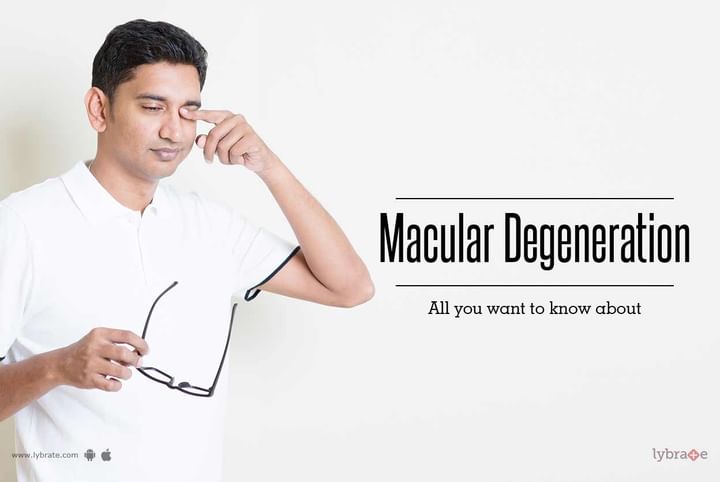Macular Degeneration - All You Want to Know About
Even something as small as an eyeball, has multiple parts within it. The retina at the back of the eyeball is responsible for the clarity of vision. The central area of the retina is known as the macula. Macular degeneration is the deterioration of this part of the retina. Macular degeneration is age related and is considered as an incurable condition. People suffering from macular degeneration experience blurred vision, black spots and may eventually lose central vision while retaining peripheral vision.
There are two types of macular degeneration; wet and dry. The dry form of this disease is more common than its wet form. Of these, the latter causes more serious vision loss. Dry macular degeneration leads to white or yellow deposits on the retina leading to further degeneration. In the wet form of this disease, blood vessels beneath the retina start growing towards the macula and may pull it away from the base when they break or leak fluid.
There are three stages of age related macular degeneration (AMD):
- Early AMD: This is diagnosed by the presence of deposits on the retina. In most cases, ether is no vision loss at this stage but regular check-ups are essential.
- Intermediate AMD: A comprehensive eye exam will show the presence of larger deposits or pigment changes in the retina. At this stage, slight vision loss may be experienced.
- Late AMD: People suffering from late AMD have noticeable vision loss. Though this disease is linked to aging, the exact triggers for macular degeneration are unknown. It is understood to be a combination of hereditary and environmental factors. The presence of certain genes and their variants has been associated with a number of cases of this disease. Studies also show that caucasians are at the highest risk of suffering from this disease. Depriving cells in the retina of oxygen can also increase a person's risk of contracting this disease. Other risk factors for this disease are obesity, smoking, high blood pressure and a light eye colour. The side effects of certain drugs can also induce this condition.
Macular degeneration is considered to be incurable, but certain forms of treatment can improve vision and slow down the rate of deterioration. Treatment prescribed by a doctor depends on stage of the disease and whether it is wet or dry. Studies suggest that a diet rich in Omega-3 fatty acids can prevent AMD and lower the risk of its progression.



+1.svg)
